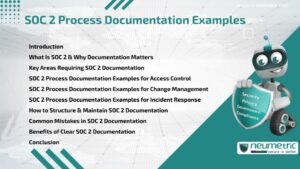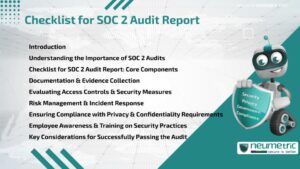Table of Contents
ToggleIntroduction
Apache Log4j is an open-source logging framework for Java applications, widely adopted by developers for its robust logging capabilities. It allows software applications to generate detailed log files, aiding in debugging, performance analysis & monitoring.
Log4j plays a pivotal role in software development. It enables developers to systematically record & analyse application events, making it an indispensable tool for maintaining software quality & reliability. Its flexibility & extensibility make it the preferred choice for logging in numerous Java projects.
Despite its popularity, Apache Log4j has faced significant security vulnerabilities in recent years. These vulnerabilities, often categorised as Remote Code Execution [RCE] flaws, have the potential to compromise the security of systems using Log4j. These issues highlight the critical need for vigilant security practices in the software development process.
This Journal delves into the various security risks associated with Apache Log4j & provides insights into effective remedies & best practices to mitigate these vulnerabilities. Understanding these vulnerabilities is crucial for developers & organisations to protect their systems & ensure the continued reliability & security of their software applications.
The Apache Log4j Security Vulnerabilities Explained
Apache Log4j, a popular Java-based logging framework, encountered a critical security flaw known as CVE-2021-44228 also known as Log4Shell. This vulnerability fundamentally compromised the Confidentiality & Integrity of systems utilising Log4j for logging.
Log4Shell is a severe vulnerability that allows remote attackers to execute arbitrary code on affected systems. It was categorised with a Common Vulnerability Scoring System [CVSS] score of 10.0, the highest possible rating, indicating its critical nature. The vulnerability stemmed from improper handling of user-supplied data, particularly in the Log4j’s Java Naming & Directory Interface [JNDI] feature.
Vulnerability Impact & Attack Scenarios: The Log4Shell vulnerability exposed systems to remote code execution, enabling attackers to compromise applications, steal sensitive data & potentially take control of entire servers. Attackers could exploit this flaw by crafting malicious requests to the JNDI feature, tricking Log4j into executing arbitrary code.
Real-world Instances of Exploitation:
- Financial Institutions & Fintech Firms were targeted, seeking unauthorised access to sensitive financial data, including customer accounts & transactions. Immediate action was necessary to avert financial losses & regulatory consequences.
- Government agencies, alongside critical infrastructure sectors like healthcare & utilities, faced threats. Attackers attempted data breaches & service disruptions within government networks.
- Cloud service providers were also impacted. Log4Shell jeopardised hosted applications & attackers sought to elevate their privileges for control over virtual instances.
The Risk Landscape
The Log4j vulnerabilities, particularly CVE-2021-44228 (Log4Shell), presented a dire risk landscape. The potential consequences of these vulnerabilities extended beyond immediate technical concerns. Exploitation could lead to unauthorised access, data breaches & system compromise. Moreover, the ability for attackers to execute arbitrary code remotely raised the spectre of financial losses, reputational damage & legal repercussions for affected entities.
The impact of Log4j vulnerabilities transcended industry boundaries. However, certain sectors faced heightened risks. Financial services & fintech companies were prime targets due to the lucrative nature of their data. Government systems & critical infrastructure, including healthcare & utilities, were also at significant risk, given the potential for service disruptions & the sensitive nature of the data they handled. Cloud Service Providers faced a unique challenge, as the vulnerabilities could compromise a wide range of hosted applications & services, affecting numerous industries indirectly.
For organisations operating within regulated environments, Log4j vulnerabilities carried substantial compliance & legal implications. Failure to address these vulnerabilities promptly could result in non-compliance with Data Protection Regulations, potentially leading to fines & legal action. Moreover, data breaches stemming from Log4j vulnerabilities exposed organisations to legal liabilities, including lawsuits from affected individuals & entities. Compliance measures & legal responsibilities became critical aspects of risk management in the wake of Log4j security vulnerabilities.
Understanding the Technical Details
The Log4Shell vulnerability, designated as CVE-2021-44228, operates by exploiting a flaw in Apache Log4j’s handling of user-supplied data. Specifically, it takes advantage of the JNDI feature, which is used for dynamic configuration of logging. Attackers can inject malicious code through crafted user input, tricking Log4j into executing arbitrary code. This unauthorised code execution allows attackers to gain control over the target system.
The vulnerability doesn’t just affect Apache Log4j itself; it ripples through systems that rely on this logging framework. Many Java applications, including web servers, enterprise software & third-party libraries, incorporate Log4j. As a result, a wide array of components & dependencies become vulnerable when Log4j is in use. This interconnectedness amplifies the potential impact of the vulnerability.
The Primary Attack Vector involves sending malicious payloads via HTTP requests, log entries or other input mechanisms that Log4j processes. When Log4j interprets these tainted inputs, it executes the embedded malicious code. Attackers can gain remote access, execute arbitrary commands, exfiltrate data or even pivot to launch further attacks within the compromised system.
Mitigating Apache Log4j Vulnerabilities
Addressing the Apache Log4j security vulnerabilities is paramount to safeguarding systems & data. The following measures can help mitigate these risks effectively:
- Immediate Actions (Patch & Update): The most urgent step is to promptly apply the official Log4j patches & updates provided by the Apache Software Foundation. This should be a top priority, as it addresses the core vulnerabilities & prevents potential exploitation. Delaying this action can leave systems exposed to threats.
- Version Compatibility & Patch Availability: Organisations must ensure that the Log4j version they are using is compatible with the available patches. In some cases, legacy or highly customised deployments may require additional attention & adjustments to ensure a smooth update process.
- Risk Assessment & Prioritization: Conduct a comprehensive risk assessment to prioritise patching efforts. Focus on critical systems & applications that handle sensitive data, customer information, or are exposed to external networks. Prioritisation helps allocate resources efficiently.
- Vulnerability Scanning & Remediation Tools: Employ vulnerability scanning tools to identify Log4j-related weaknesses across your infrastructure. These tools can streamline the process by pinpointing vulnerable components, aiding in swift remediation & verifying patch effectiveness.
Best Practices for Secure Log4j Implementation
To mitigate the risks associated with Apache Log4j security vulnerabilities, it is imperative to follow best practices when implementing & configuring the logging framework:
- Configuration Hardening: Start by minimising the attack surface. Ensure that your Log4j configuration is hardened, with unnecessary features & components disabled or removed. Review & restrict access to configuration files, limiting the ability to change logging behaviour. Implement strong access controls to safeguard these critical files from unauthorised modifications.
- Principle of Least Privilege: Apply the Principle of Least Privilege to Log4j components & processes. Grant only the necessary permissions to execute & access Log4j resources. Avoid running Log4j with overly permissive privileges, as this reduces the potential impact of an attack.
- Log Sanitization & Data Protection: Be mindful of the information logged. AVOID logging sensitive data like credentials, personal identifiers, or sensitive business information. Implement data sanitization techniques to strip or mask sensitive data before it is logged. Additionally, encrypt log files to protect the confidentiality of logged information.
- Monitoring & Alerting Strategies: Implement robust monitoring & alerting mechanisms to detect suspicious activities & potential exploitation attempts. Regularly review log files for anomalies & establish automated alerts for unusual log entries or access patterns. This proactive approach can help identify & respond to security incidents promptly.
Response & Incident Handling
Effective incident detection & response plans are imperative in mitigating the risks posed by Apache Log4j security vulnerabilities. Organisations must deploy robust monitoring systems capable of identifying suspicious activities related to Log4j exploitation. Automated alerts should be configured to trigger responses when potential threats are detected. Additionally, having well-defined incident response teams & procedures in place ensures a swift & coordinated reaction to security incidents. Regular testing & simulation exercises are vital for validating the efficacy of these plans.
Open & transparent communication with stakeholders is essential during a Log4j security incident. Organisations should promptly notify affected parties, such as customers, partners & regulatory authorities, about the breach. Detailed information regarding the incident’s impact, mitigation measures & steps taken to prevent future occurrences should be shared. Maintaining clear & honest communication helps build trust & demonstrates commitment to addressing the issue.
Conducting thorough forensic analysis post-incident is crucial for understanding the extent of the breach & identifying the vulnerabilities that were exploited. This analysis informs the development of stronger security measures. A post-incident review should involve a multidisciplinary team assessing the incident response’s effectiveness & identifying areas for improvement. Learnings should be integrated into future security strategies to fortify defences against Log4j vulnerabilities.
Long-Term Strategies for Log4j Security
Ensuring the enduring security of Apache Log4j requires a multifaceted approach that extends beyond immediate patches. These long-term strategies are crucial to fortify Log4j against future vulnerabilities & maintain the integrity of systems relying on it.
- Code Review & Secure Coding Practices: Implementing secure coding practices is paramount. Regular code reviews, both manual & automated, should be conducted to identify & rectify potential security issues. Developers must adhere to coding standards that emphasise input validation, data sanitization & secure handling of user-supplied data within Log4j configurations. By ingraining security into the development process, organisations can minimise the introduction of vulnerabilities.
- Dependency Management & Updates: Rigorous dependency management is essential. Organisations must maintain a comprehensive inventory of software components, including Log4j & stay vigilant for updates & security patches. Timely integration of security updates ensures that known vulnerabilities are promptly addressed, reducing the attack surface & safeguarding systems.
- Monitoring & Continuous Security Testing: Ongoing vigilance is crucial for Log4j security. Implement robust monitoring solutions to detect suspicious activities & potential security breaches. Employ continuous security testing practices, such as vulnerability scanning & penetration testing, to proactively identify & remediate security weaknesses. Regular security assessments help organisations stay ahead of emerging threats & evolving attack vectors.
Case Studies: Log4j Vulnerability Exploitation
The Log4j vulnerability, specifically CVE-2021-44228 or Log4Shell, led to several high-profile cases of exploitation, highlighting the extensive reach & impact of this security flaw. Some notable cases include:
Minecraft Server Hijacking: Attackers targeted Minecraft servers, exploiting Log4Shell to compromise user data & disrupt gameplay for thousands of gamers. This incident revealed the vulnerability’s versatility & the ability of attackers to target even non-traditional systems.
Cryptocurrency Exchange Attacks: Multiple cryptocurrency exchanges reported attempted Log4Shell attacks. While some successfully defended against these threats, smaller platforms faced disruptions, potential data breaches & the risk of financial loss.
Financial Sector Breaches: Financial institutions & Fintech companies were prime targets for Log4Shell attacks. Threat actors sought unauthorised access to sensitive financial data, raising concerns about customer account security & regulatory compliance.
Government & Critical Infrastructure: Government agencies & critical infrastructure sectors, such as healthcare & utilities, weren’t immune. Attackers attempted to infiltrate government networks to access sensitive data & disrupt essential services.
These incidents highlight essential lessons for cybersecurity experts & organisations. They stress the need for timely software updates across industries. Moreover, they underscore the significance of proactive security measures, continuous threat monitoring & effective incident response strategies to mitigate vulnerabilities’ impact. Log4Shell’s exploitation serves as a stark reminder of the ever-changing threat landscape, demanding ongoing vigilance & adaptability in the cybersecurity field.
The Future of Apache Log4j Security
As the cybersecurity landscape continually evolves, the future of Apache Log4j security presents both challenges & opportunities.
Upcoming Trends & Threats: In the near future, Apache Log4j will encounter evolving security challenges due to advancing cyber threats & software developments. Emerging trends involve prioritising cloud-native logging, adapting to technologies like serverless computing & containers & addressing evolving compliance needs like General Data Protection Regulation [GDPR] & California Consumer Privacy Act [CCPA]. Given Log4j’s widespread use, it’s likely to be a prime target for cybercriminals, underscoring the importance of vigilant monitoring & timely patching.
Ongoing Community Efforts & Security Improvements: The Apache Log4j community is dedicated to bolstering security. This involves proactive vulnerability assessments, quicker patch releases, improved documentation for user security & collaboration with the wider cybersecurity community. Responsible disclosure practices & urging users to stay informed & update their Log4j installations are pivotal for future security enhancements.
Conclusion
Throughout this Journal, we delved into the world of Apache Log4j security vulnerabilities. We discussed the critical CVE-2021-44228 (Log4Shell) vulnerability, its impact & instances of real-world exploitation. Additionally, we explored the ongoing efforts by the Log4j community to enhance security.
The Log4j vulnerabilities underscore the ever-present need for vigilance in software security. In a rapidly evolving threat landscape, no software is immune to vulnerabilities & timely updates & patches are imperative to mitigate risks.
Apache Log4j remains a widely used logging framework, making it a target for cyber threats. The future of Log4j security depends on proactive measures, swift responses to emerging threats & user awareness. It is crucial for organisations to stay informed, apply patches promptly & adopt best practices to secure their Log4j deployments. By doing so, they can effectively manage & mitigate the risks associated with this essential software component.





